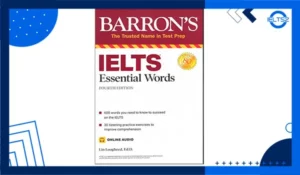IELTS Band 9 Essay About excelling in school is a crucial apparatus for measuring intelligence
Here we take a look at a band 9 ielts writing task 2 sample about “Excelling in school is a crucial apparatus for measuring intelligence”. This sample then will be further analyzed for its vocabulary, grammar and format, so we see how it has qualified for such band score. We also suggest over 100 band 9 IELTS sample released in 2024.
Introduction to excelling in school is a crucial apparatus for measuring intelligence
The idea that academic performance reflects intelligence is widely debated. While high grades may indicate cognitive ability and dedication, they do not necessarily encompass all forms of intelligence. Intelligence is a multifaceted concept, including creativity, emotional understanding, and problem-solving skills. Grades often measure memorization and standardized skills, overlooking non-academic talents. For instance, individuals with strong interpersonal or artistic abilities may not excel in traditional school settings yet display exceptional intelligence in other domains. Therefore, it is essential to recognize that intelligence goes beyond grades, encompassing a broader range of human capabilities.
Sample Band 9 Answer
Some people believe that excelling in school is a crucial apparatus for measuring intelligence.
Do you think there is a correlation between grades and intelligence?
How would you define intelligence?
The correlation between academic performance and intelligence has long been a topic of discussion. While excelling in school can reflect certain cognitive abilities, I firmly believe that intelligence is a multifaceted concept that cannot be solely determined by grades.
On the one hand, high grades may signify a student’s proficiency in understanding and applying knowledge within a structured framework. Academic assessments typically measure memory, analytical skills, and the ability to follow instructions, all of which are essential components of intellectual functioning. For example, success in subjects like mathematics or science often requires logical reasoning and critical thinking, which are indicators of a specific type of intelligence. However, it is important to note that grades are also influenced by external factors, such as access to resources, quality of teaching, and even test-taking strategies. Thus, they may not provide an entirely accurate representation of a person’s intellectual potential.
On the other hand, intelligence encompasses a much broader range of skills and attributes beyond academic achievement. According to theories like Howard Gardner’s Multiple Intelligences, individuals possess varied forms of intelligence, including interpersonal, linguistic, musical, and kinesthetic abilities. A talented musician or an empathetic leader, for instance, might not excel academically but still demonstrate remarkable intelligence in their respective domains. Additionally, emotional intelligence, which involves self-awareness and the ability to navigate social relationships effectively, is increasingly recognized as a critical determinant of success in life, yet it remains unmeasured in traditional educational settings.
In my view, defining intelligence requires a holistic approach that considers diverse capabilities. While academic performance is a valid indicator of certain cognitive skills, it is merely one aspect of a much larger picture. Recognizing and valuing different forms of intelligence is essential for fostering a more inclusive understanding of human potential.
In conclusion, while there may be some correlation between grades and intelligence, it is neither definitive nor comprehensive. Intelligence is a complex and multidimensional construct, and its evaluation should extend beyond academic performance to embrace the diverse talents and strengths that individuals bring to the table.

Selected Academic Words in sample of excelling in school is a crucial apparatus for measuring intelligence
- Proficiency
Pronunciation: /prəˈfɪʃ.ən.si/
Sentence: Proficiency in multiple languages can enhance career opportunities. - Intellectual
Pronunciation: /ˌɪn.təlˈek.tʃu.əl/
Sentence: The book offers an intellectual challenge for advanced readers. - Multiple Intelligences
Pronunciation: /ˈmʌl.tɪ.pl̩ ɪnˈtel.ɪ.dʒənsɪz/
Sentence: Howard Gardner’s theory of multiple intelligences has reshaped educational strategies. - Empathetic
Pronunciation: /ˌem.pəˈθet.ɪk/
Sentence: An empathetic manager can build stronger relationships with employees. - Holistic
Pronunciation: /həʊˈlɪs.tɪk/
Sentence: A holistic approach to healthcare considers both physical and mental well-being.
Advanced Grammar Structures
- Complex Sentences
- Example: “While excelling in school can reflect certain cognitive abilities, I firmly believe that intelligence is a multifaceted concept that cannot be solely determined by grades.”
- Impact: This structure conveys nuanced relationships and adds sophistication to the writing.
- Conditional Sentences
- Example: “If intelligence were solely defined by grades, many gifted individuals would remain unrecognized.”
- Impact: Conditional structures demonstrate the ability to present hypothetical scenarios, enhancing task response.
- Relative Clauses
- Example: “Grades often measure memory and standardized skills, which are only a fraction of what constitutes intelligence.”
- Impact: Relative clauses provide additional information and improve sentence variety.
- Passive Voice
- Example: “Intelligence is increasingly recognized as a multidimensional construct.”
- Impact: Passive constructions emphasize the subject being acted upon, enhancing formality.
- Parallel Structures
- Example: “Intelligence includes creativity, problem-solving, and emotional understanding.”
- Impact: Parallelism improves coherence and rhythm, making arguments more persuasive.
Writing Format and Features for Band 9
- Structure: The essay follows a clear and logical structure with an introduction, body paragraphs presenting both sides, and a conclusion.
- Task Achievement: The response fully addresses both parts of the task, providing a balanced discussion with well-supported arguments.
- Cohesion and Coherence: Effective use of cohesive devices such as “on the one hand,” “however,” and “in conclusion” ensures seamless idea progression.
- Lexical Resource: A wide range of academic vocabulary is used precisely and appropriately, demonstrating linguistic depth.
- Grammatical Range and Accuracy: Complex and varied sentence structures, including passive voice and parallelism, enhance grammatical sophistication.
This essay meets Band 9 criteria by combining well-structured arguments, advanced language use, and a deep understanding of the topic.
Free IELTS Sample Essays with Answers PDF
Here you can download over a 1000 sample essays in pdf written by ex ielts examiners: PDF 1 / PDF 2 / PDF 3 / PDF 4 / PDF 5
Last But Not Least!
we suggest a useful IELTS website in English for more valuable IELTS sample essays on a range of topics. Our final suggestion is our writing free correction Telegram channel where you can send your own sample for evaluation and correction by an experience IELTS tutor with over a decade of practical experience in this matter.






